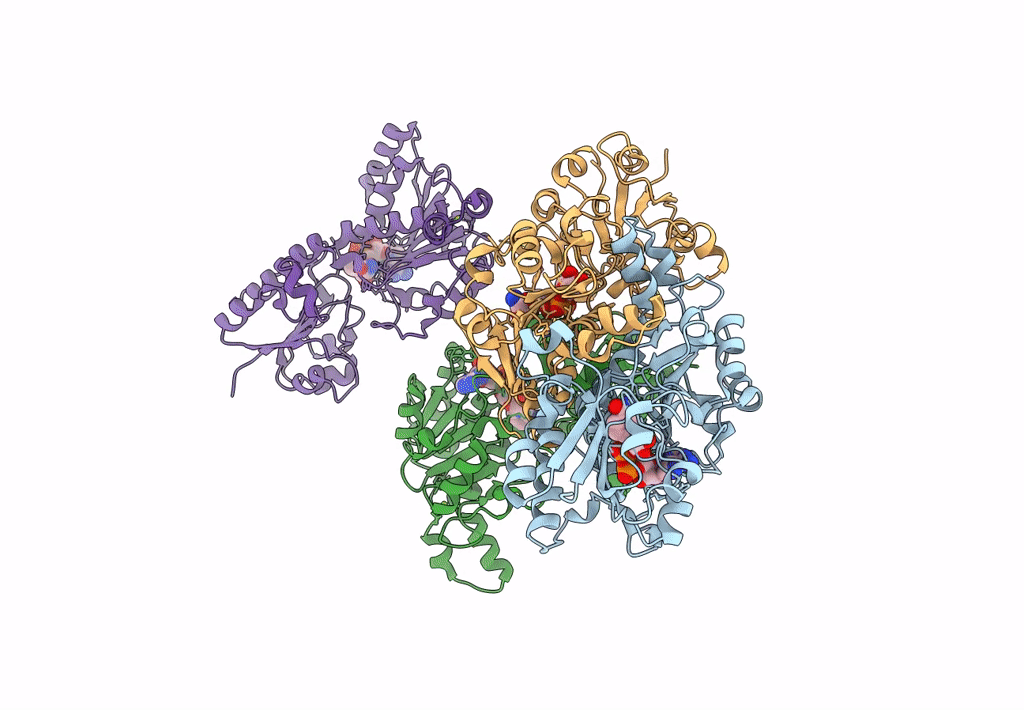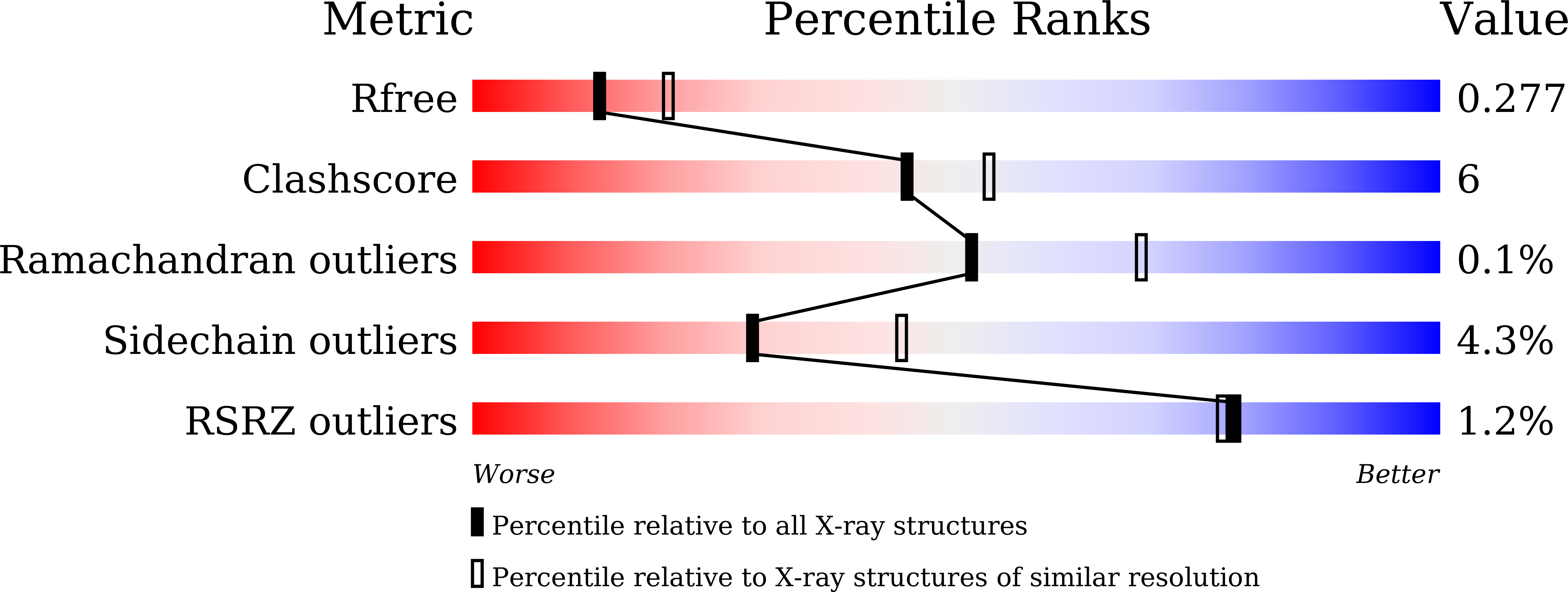
Deposition Date
2023-04-17
Release Date
2023-09-20
Last Version Date
2023-11-01
Entry Detail
PDB ID:
8J3O
Keywords:
Title:
Formate dehydrogenase wild-type enzyme from Candida dubliniensis complexed with NADH
Biological Source:
Source Organism(s):
Expression System(s):
Method Details:
Experimental Method:
Resolution:
2.65 Å
R-Value Free:
0.27
R-Value Work:
0.22
R-Value Observed:
0.22
Space Group:
P 1


